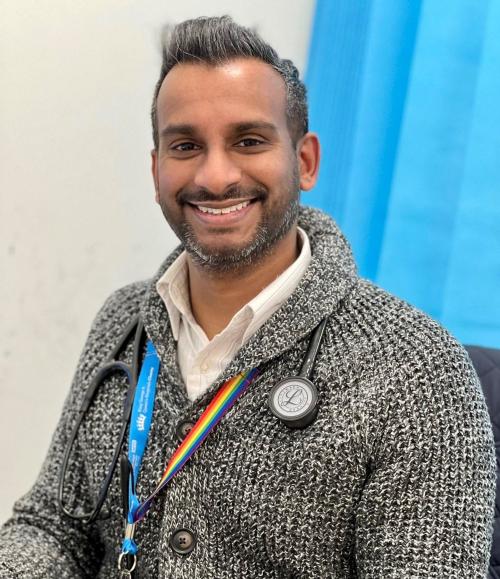World Aids Day

Friday 1 December marks the 35th anniversary of World Aids Day - a great opportunity to recognise how far treatment has come, while continuing to raise awareness and educating about this long-term health condition.

Avan Umaipalan (above), our lead HIV consultant, said: “I decided to specialise in HIV after a medical rotation in the speciality. I was amazed at how effective treatments for HIV had become and the difference it made to our patients’ lives. They are now able to live a normal life with no restrictions.
“I am of the new generation of consultants who started after effective treatments were available. I hear how colleagues used to manage patients when no treatments were available, or when they caused terrible side effects. Treatment options have vastly improved and patients now often just need a single table with little or no side effects.”

For our Lead HIV Nurse Brian Thorton (above), there was a personal reason which drove him to work with these patients. He said: “As a gay man growing up in the north of England, I felt I needed to go and help other gay men who were dying of AIDS at that time.
“While at the beginning these men were the biggest group affected, we now actually see more heterosexuals being diagnosed. HIV care has improved so much since I came to London and now the majority of people stay fit and well. I do get upset when I look back and think of all those people who died horrible deaths.”
Despite the strides taken in treatment and quality of life, there is still stigma associated with HIV.
Brian added: “I’ve had patients who have told someone at church about their infection and the next week, no one will sit next to them, and people have lost their jobs.”
One of our patients, Sarah (not her real name) shared her experience at a special online event held on Friday 1 December. The event focused on living with HIV, and the groundbreaking progress in treating it.
Sarah was diagnosed in an African country when her fiancé, who she was soon to marry, became ill. Her partner died soon after and she was subsequently diagnosed with HIV. Rather than being supported by her family, she was shunned.
She met her current partner when she was struggling with depression and self-acceptance, while working with support groups to help other women in a similar situation to her.
While she was first advised not to have children, medical advances meant she later had a family. Once her daughter was born, the family moved to the UK to try to avoid the stigmatisation Sarah had experienced.
Sarah said: “This was my best decision as it was here I found medical support and the inspiration, encouragement and acceptance I desperately needed to start a new life.”
Praising the compassionate support of our HIV team, based at Barking Community Hospital, Sarah added: “My health improved remarkably under the care of these beautiful staff. With their guidance I learned to manage my condition and in this positive environment, I was able to make my dreams a reality.”
Sarah has since obtained a bachelor’s degree in integrative counselling and a Masters in domestic violence and sexual abuse. She is now a director of a charity which supports women.
While our lead HIV consultant Avan believes there may always be some stigma around HIV, he said education is the best way to tackle it.
He added: “This begins with healthcare professionals understanding the condition better and being sensitive on how they approach talking around HIV with patients.”
We’re continuing the conversation on HIV and will be holding further online events aimed at staff and partners over the coming week, focusing on HIV diagnosis and services, medication and reflecting on the past and embracing the future.
To find out more about our service, or to book an appointment, visit our web page.
